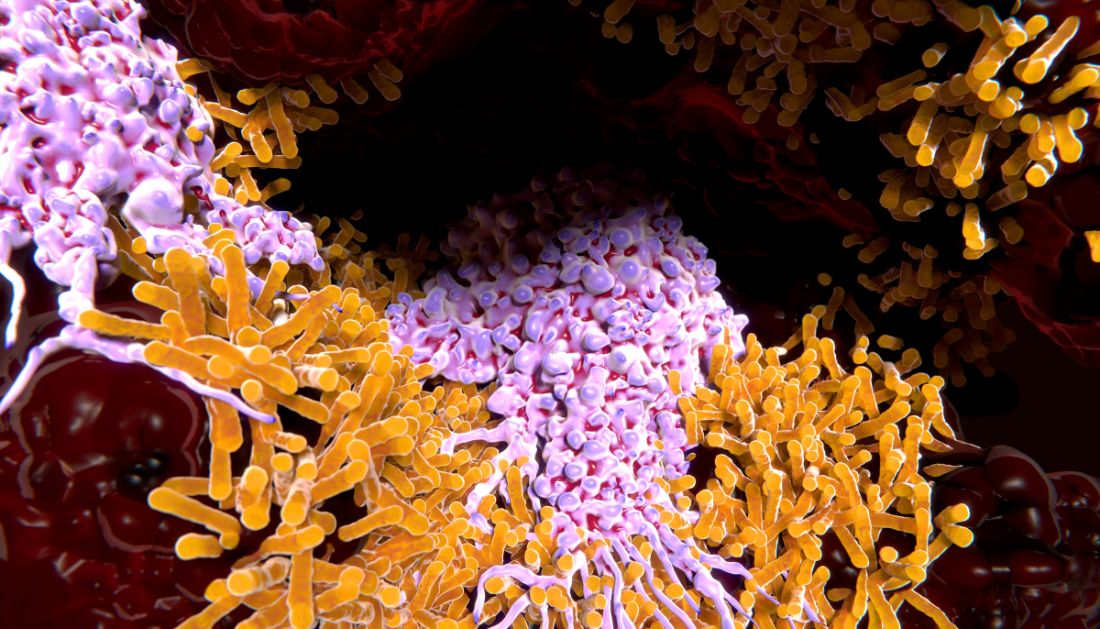

A Breakthrough in Cellular Recycling
Macrophages, key defenders of the immune system, do more than engulf pathogens. They also clear damaged components inside cells, a process traditionally linked to macroautophagy. But new research from The University of Osaka, published in Nature Communications on August 30, 2025, reveals a direct cleanup pathway: microautophagy in macrophages. Unlike macroautophagy, this process allows macrophages to directly engulf and digest damaged mitochondria and organelles, conserving energy while maintaining immune readiness.
Explore all Cell and Developmental Biology, along with Immunology and Microbiology CME/CE Conferences
How Microautophagy Works in Macrophages
In this study, researchers identified lysosome-related organelles inside macrophages that bypass the need for autophagosomes. These compartments directly swallow damaged mitochondria, aided by regulatory proteins and lipids including Rab32 GTPase, phosphatidylinositol 3,5-bisphosphates, ubiquitin, and p62/SQSTM1.
“Macroautophagy has been extensively studied, but microautophagy is not understood as extensively. We found that this process seems to play a more prominent role… due to its lower energy demand,” said Shiou-Ling Lu, Assistant Professor and study lead author.
This efficient cleanup mechanism also influences macrophage metabolism. By removing damaged mitochondria, macrophages shift toward glycolysis, fueling the M1 inflammatory state, which is critical in infection control.
Clinical Relevance of Microautophagy
The findings underscore that microautophagy in macrophages is not just cellular housekeeping it plays a direct role in immune regulation. Knocking out Rab32/38 significantly impaired this pathway, highlighting its importance for inflammation readiness and mitochondrial quality control.
“Our findings reveal that macrophages have an underappreciated way to recycle their own damaged parts, and this process directly shapes how they function,” added senior author Takeshi Noda.
For healthcare professionals, this discovery opens opportunities to understand immune dysfunction in chronic inflammatory diseases, infections, and even age-related conditions where mitochondrial health and autophagy pathways are compromised.
What’s Next for Research and Clinical Practice?
This study encourages further exploration of microautophagy pathways as potential therapeutic targets in infectious diseases, immunology, and metabolic disorders. Understanding how macrophages balance their recycling processes could inform strategies to strengthen host defense and control excessive inflammation.
For More Information
Lu, S.-L., et al. (2025). Evidence that mitochondria in macrophages are destroyed by microautophagy. The University of Osaka
more recommended stories
 AI Predicts Chronic GVHD Risk After Stem Cell Transplant
AI Predicts Chronic GVHD Risk After Stem Cell TransplantKey Takeaways A new AI-driven tool,.
 Red Meat Consumption Linked to Higher Diabetes Odds
Red Meat Consumption Linked to Higher Diabetes OddsKey Takeaways Higher intake of total,.
 Pediatric Crohn’s Disease Microbial Signature Identified
Pediatric Crohn’s Disease Microbial Signature IdentifiedKey Points at a Glance NYU.
 Nanovaccine Design Boosts Immune Attack on HPV Tumors
Nanovaccine Design Boosts Immune Attack on HPV TumorsKey Highlights Reconfiguring peptide orientation significantly.
 High-Fat Diets Cause Damage to Metabolic Health
High-Fat Diets Cause Damage to Metabolic HealthKey Points Takeaways High-fat and ketogenic.
 Acute Ischemic Stroke: New Evidence for Neuroprotection
Acute Ischemic Stroke: New Evidence for NeuroprotectionKey Highlights A Phase III clinical.
 Statins Rarely Cause Side Effects, Large Trials Show
Statins Rarely Cause Side Effects, Large Trials ShowKey Points at a Glance Large.
 Can Too Many Antioxidants Harm Future Offspring?
Can Too Many Antioxidants Harm Future Offspring?Key Takeaways High-dose antioxidant supplementation in.
 Anxiety Reduction and Emotional Support on Social Media
Anxiety Reduction and Emotional Support on Social MediaKey Summary Anxiety commonly begins in.
 Liquid Biopsy Measures Epigenetic Instability in Cancer
Liquid Biopsy Measures Epigenetic Instability in CancerKey Takeaways Johns Hopkins researchers developed.

Leave a Comment